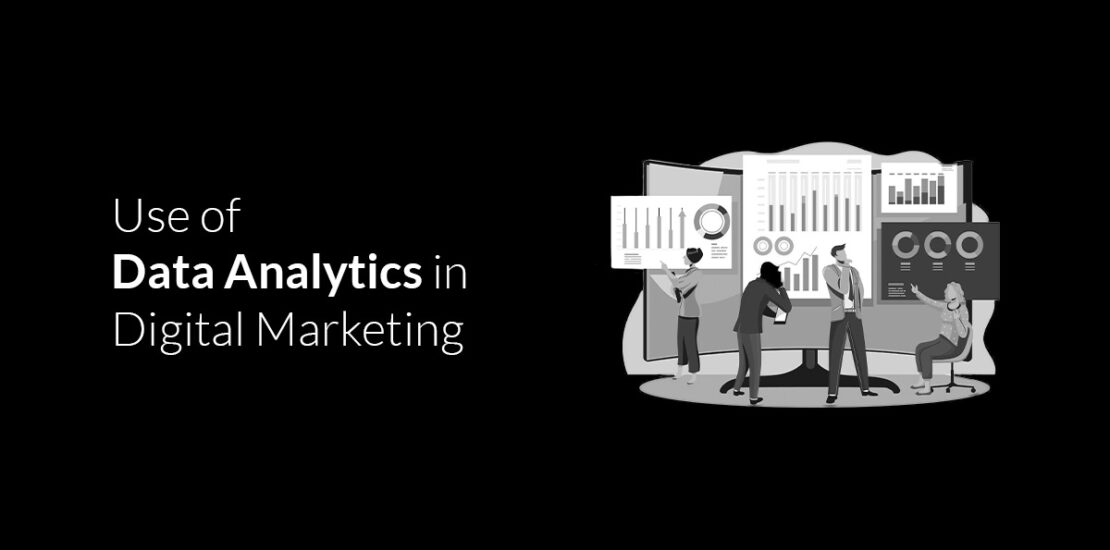Use of Data Analytics in Digital Marketing
- July 7, 2022
- Posted by: White Elephant
- Category: SEO

The future of data analytics is going to be very different from what we have today.
Data analytics is the process of applying statistical methods on large volumes of heterogeneous and often complex data sets in order to gain insights and uncover patterns for making more informed decisions. It has become a vital tool for companies across all industries, such as financial services, retail, healthcare and government organizations.
The use of analytics has increased exponentially over the past few years with various technology platforms that enable businesses to analyze their data in order to extract actionable insights while optimizing business processes and KPIs.
What is Data Analytics?
Data analytics is the process of analyzing huge amounts of data to derive meaningful insights and make better decisions. It involves the use of statistical methods, mathematical modeling, machine learning and visualization techniques to analyze, summarize and present data in such a way that it can be used for decision-making purposes.
Data Analysis in Digital Marketing
Data analysis is a critical component of digital marketing. It enables companies to identify the right audience, understand what type of content is being consumed, and how a message can be delivered in the most effective way.
The role of data analysis in digital marketing has grown tremendously over the past few years. Companies are now looking at integrating data science into their digital marketing efforts, which includes putting analytics at the centre of their strategy.
Data analytics is an important part of digital marketing. It helps companies in understanding their customers’ needs better, which in turn helps them serve them better. This helps them increase sales and build brand loyalty among customers.
Trends in Data Analysis: Current and Predicted
Increased Use of Artificial Intelligence (AI) and Machine Learning (ML)
The use of artificial intelligence has been growing rapidly in recent years. AI is expected to be a $15 billion industry by 2025, according to Gartner. It’s used for a variety of purposes, including data analysis, object recognition, automated decision making, and voice recognition. The ability for computers to learn from their experiences has never been so accessible before.
Increasing Cloud Adoption
The cloud is an important trend in data analytics because it allows us to increase efficiency and speed up the process of performing analytics without having to invest in expensive infrastructure or software. There are many benefits to using the cloud for your business, including:
Easier access
You don’t have to worry about installing software or setting up servers; you can access all your data from any device that has an internet connection
Faster completion
You can turn around results quickly because they are stored on a remote server rather than on your local computer or laptop; this also means that you don’t need to be near your data source when it’s being analyzed.
The digital age has brought about a plethora of new tools, techniques and trends that are shaping how we work in the modern workplace.
As an employer, you want to ensure that your team has the skills needed to embrace these trends and stay competitive.
Data Visualization:
Data visualization helps you easily present complex information in a way that is easy to understand and digest. It can help you communicate your ideas effectively by using graphs, charts and tables. For example, if you’re trying to communicate the impact of a recent product launch, data visualization could prove invaluable in presenting it in an engaging manner.
Critical Thinking:
Critical thinking is one of the most important skills for any job today – especially in tech companies like Google or Facebook where users are inundated with information every day. Critical thinking skills allow employees to dig deeper into their own research and analysis of data rather than just taking the word of others as gospel truth. This helps them make well-informed decisions about products and features based on facts rather than what someone else tells them is “best practice” for their business.
Communication:
The ability to effectively communicate your brand message is an essential part of the role. You need to be able to explain your product or service clearly, without getting lost in jargon or being too technical.
Business Acumen:
Business acumen is the ability to manage business operations, including finance, marketing, sales, and operations. The most important skill for data analyst and data scientist is the ability to analyze large sets of data, extract insights from it, and communicate those insights to others.
Business acumen is critical in not only understanding what your data can and cannot tell you, but also how to effectively communicate that knowledge with other people.
Technical Skills:
Data scientists require a wide range of technical skills including advanced programming languages like R, Python or Java; statistical analysis; machine learning; web scraping (a method of extracting data from web pages); SQL databases (e.g., Oracle); and visualization tools such as Tableau or QlikView.
Final Note
The use of data analytics in digital marketing has become a very important part of the entire marketing strategy. It is used to help evaluate the effectiveness of the campaign and then make informed decisions pertaining to its future implementation.
